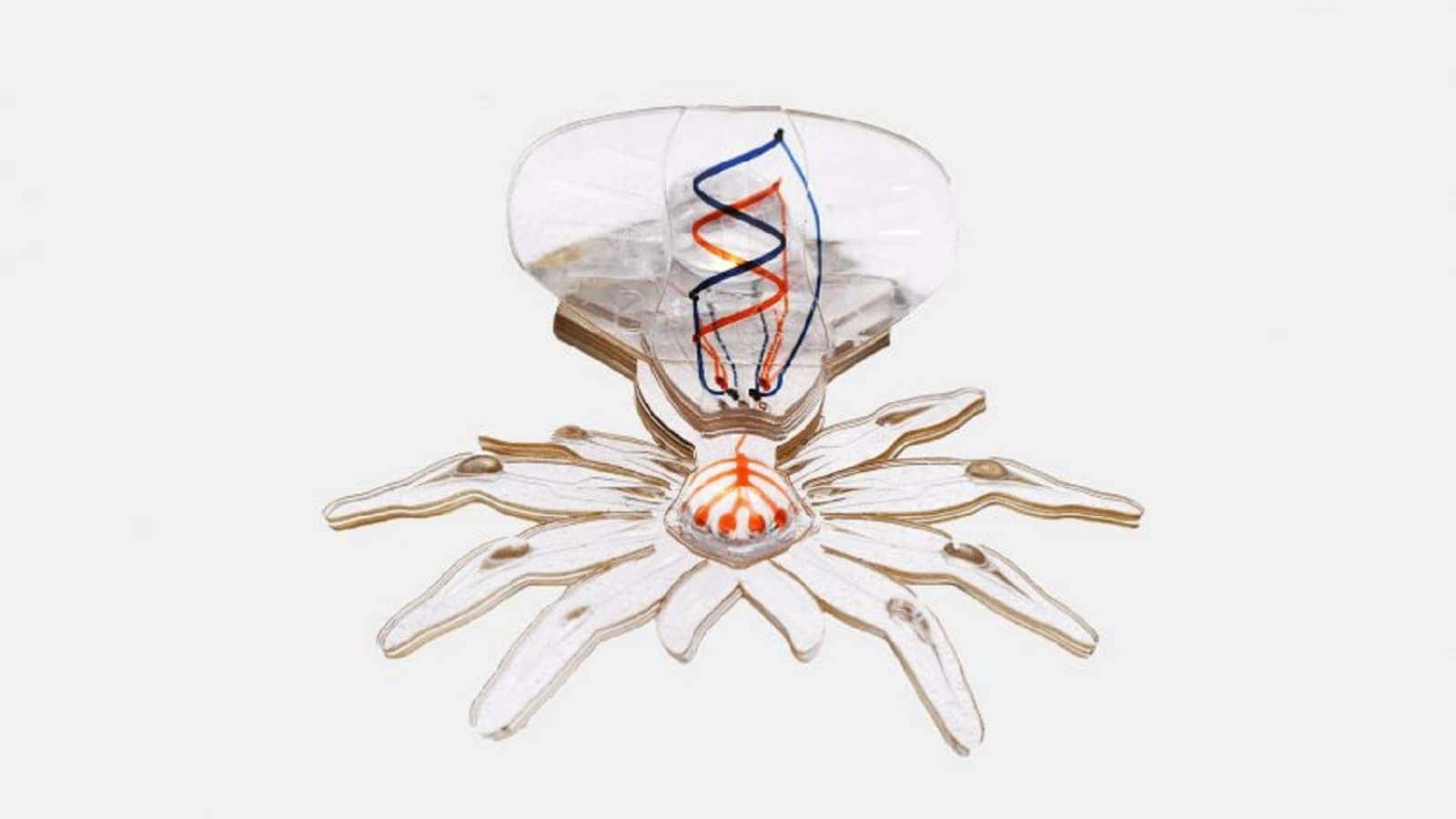News
Researchers are honestly considering putting tiny robotic spiders in us to perform surgeries
What a tangled web we weave.

Just a heads up, if you buy something through our links, we may get a small share of the sale. It’s one of the ways we keep the lights on here. Click here for more.
I don’t know what to say anymore, you guys. I feel like I’ve been on my soapbox for months, screaming at the top of my lungs about the clear and inherent danger in unleashing things like sentient soda machines, morally righteous self-driving cars, robo-butlers, and roboCOPS upon the general public, and yet every time I speak it just gets worse.
How could it get worse than robocops, you ask? Well, how about ROBO-SURGERY SPIDERS.
LOOK AT IT
Dubbed the MORPH, these microscopic arachnid nightmares were developed by Harvard researchers late last year with the goal of “one day working inside your body to repair tissues or destroy tumors,” according to Fast Company.
Which, I mean, COME ON Harvard. First MIT creates parkouring robots and now you pull this crap? Either the greatest minds in the Boston area are fully aware of the impending robopocalypse and are trying to preemptively curry favor with our future overlords, or they are already robots themselves. Go ahead, try to tell me I’m wrong.
According to Sheila Russo, co-author of the study, their little monster can alter its structure, move, and even change colors. It seemed appropriate to test it by creating a replica of the colorful, millimeter-size Australian peacock spider.
Suffice it to say, there isn’t an amount of NOPE that would sufficiently describe the prospect of having tiny spiders crawl around inside me to fix my hernia
Thankfully, the spiders are nowhere near ready for practical medical application, but Boston University assistant professor and study co-author Tommaso Ranzani is already waxing poetic about the other uses for these spiders. Mainly, sending them to space-ARE YOU KIDDING ME.
“[The spider] robot is a first demonstration of the manufacturing capabilities that this process enables,” he says, no doubt while calmly checking to make sure his oil levels are.
“And we believe it will pave the way to a new generation of soft micro-robots that can exploit their small scale, and deformable and resilient bodies, to explore highly unstructured and complex environments for applications ranging from safe and delicate manipulation of tissues inside the human body to search and rescue.”
Let it be known that if I am ever trapped under a fallen building or some such other cave-in, I will find no such comfort in an army of robo-spiders coming to my “rescue.”
What do you think? Am I only in these fears? Why are we allowing this? WHO is allowing this? Let us know down below in the comments or carry the discussion over to our Twitter or Facebook.
Editors’ Recommendations:
- Here’s everything you should know about Apple’s iOS 13
- The Bird Cruiser is the electric bike we didn’t ask for
- iRobot is back with a duo of home-cleaning robots to keep your floors clean
- Robotics startup Anki is closing up shop































